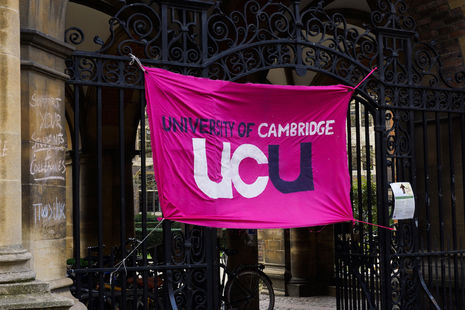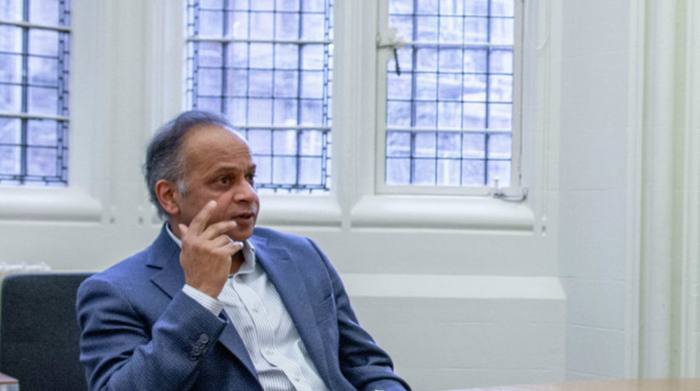University has the power to help resolve marking boycott, says UCU rep
According to Cambridge UCU President, a public statement by the University could lead national employers to re-enter negotiations

A public statement from the University of Cambridge, calling for employers to settle the ongoing pay dispute, would be a major step towards minimising exam and graduation disruption, Cambridge UCU President Michael Abberton has claimed in an interview with Varsity.
Earlier this week, Cambridge voted down “emergency measures” designed to minimise the marking boycott’s impact. Now, there are two potential outcomes: either there will be major disruptions to graduations, or negotiations will restart on the dispute behind the boycott.
The industrial dispute is over pay and working conditions. The University and College Union (UCU), whose action comes under a national strike mandate, are lined up against the national-level employers’ representative, the UCEA. As it stands, the UCEA has refused to re-enter negotiations with the UCU.
The university’s senior administrative team have been meeting with the University and College Union (UCU) every day this week, in attempts to come to an agreement on how to approach the situation.
The University cannot directly negotiate with staff given the national nature of the dispute with the UCEA. However, Abberton said that Cambridge’s senior management “have immense influence” and can “affect the dispute nationally”.
Abberton cites the precedent of Cambridge’s past action on other industrial disputes as an example of how the university “has influence, although they may try to play it down, strong enough to break through these kinds of situations”.
In 2021, staff were also striking over pensions. Cambridge issued a joint statement with the UCU, asking the employers’ representative Universities UK to negotiate. The University also undertook an independent valuation of the national USS pensions scheme, which determined that restoring pension benefits was financially viable. Earlier this year, Universities UK made concessions to the UCU, which academics and staff voted to move forward with.
“Other universities are just waiting. If Cambridge makes the move, they will be joined”, Abberton said, arguing that the University is well placed to build pressure on the UCEA “to come back to the table”.
If a “sufficiently realistic” offer were tabled, Abberton claimed that “the national executive of the union could suspend the action”, and marking and graduations would go ahead.
However, the Cambridge UCU President stressed the need for quick action from the University in a joint statement: “we’re so close now to running out of time”, he stated, “we are against the clock. If we are going to make sure that students can graduate this year, then we have a very short window to act”.
Discussing the new student #SettletheDispute campaign, Abberton expressed his “complete support”, and stressed the effectiveness of students’ attempts to put pressure on the University.
 News / Colleges charge different rents for the same Castle Street accommodation2 March 2026
News / Colleges charge different rents for the same Castle Street accommodation2 March 2026 News / News in Brief: waterworks, wine woes, and workplace wins 1 March 2026
News / News in Brief: waterworks, wine woes, and workplace wins 1 March 2026 News / Climate activists protest for ‘ethical careers policy’1 March 2026
News / Climate activists protest for ‘ethical careers policy’1 March 2026 News / Angela Merkel among Cambridge honorary degree nominees27 February 2026
News / Angela Merkel among Cambridge honorary degree nominees27 February 2026 News / Private school teacher who lied about Cambridge degree barred from teaching27 February 2026
News / Private school teacher who lied about Cambridge degree barred from teaching27 February 2026










